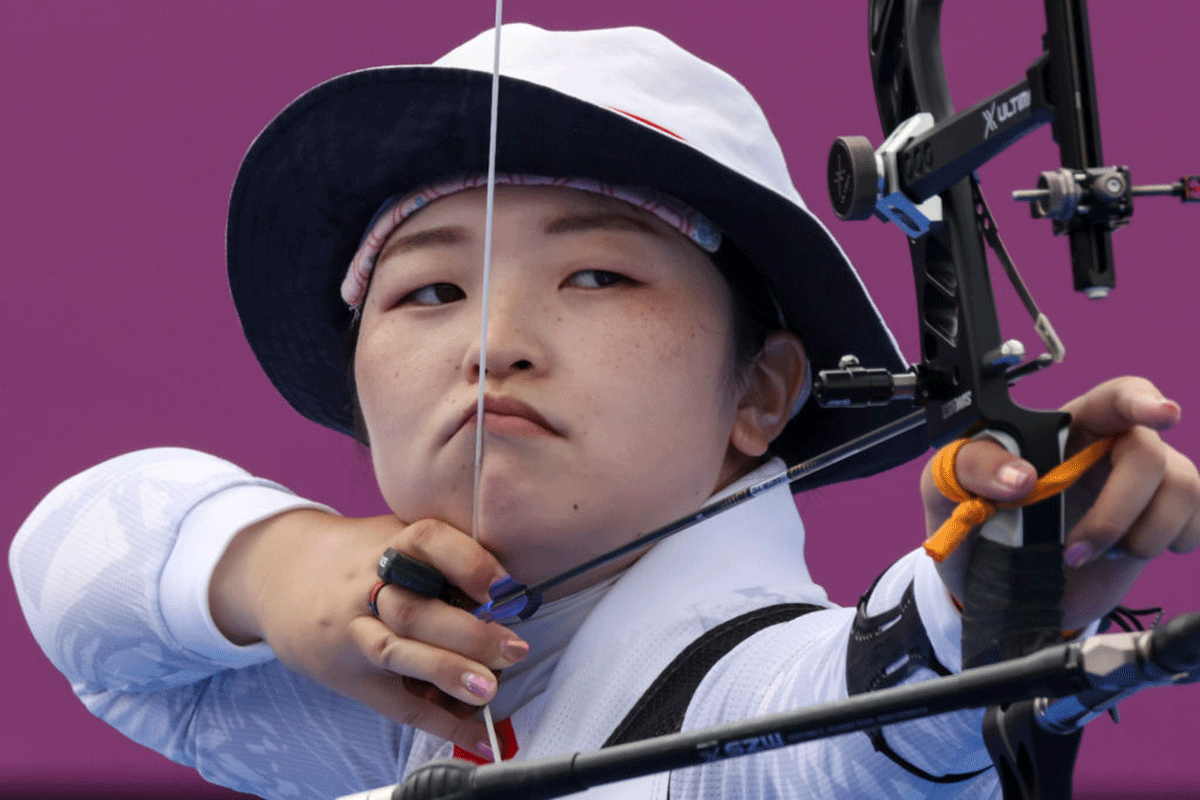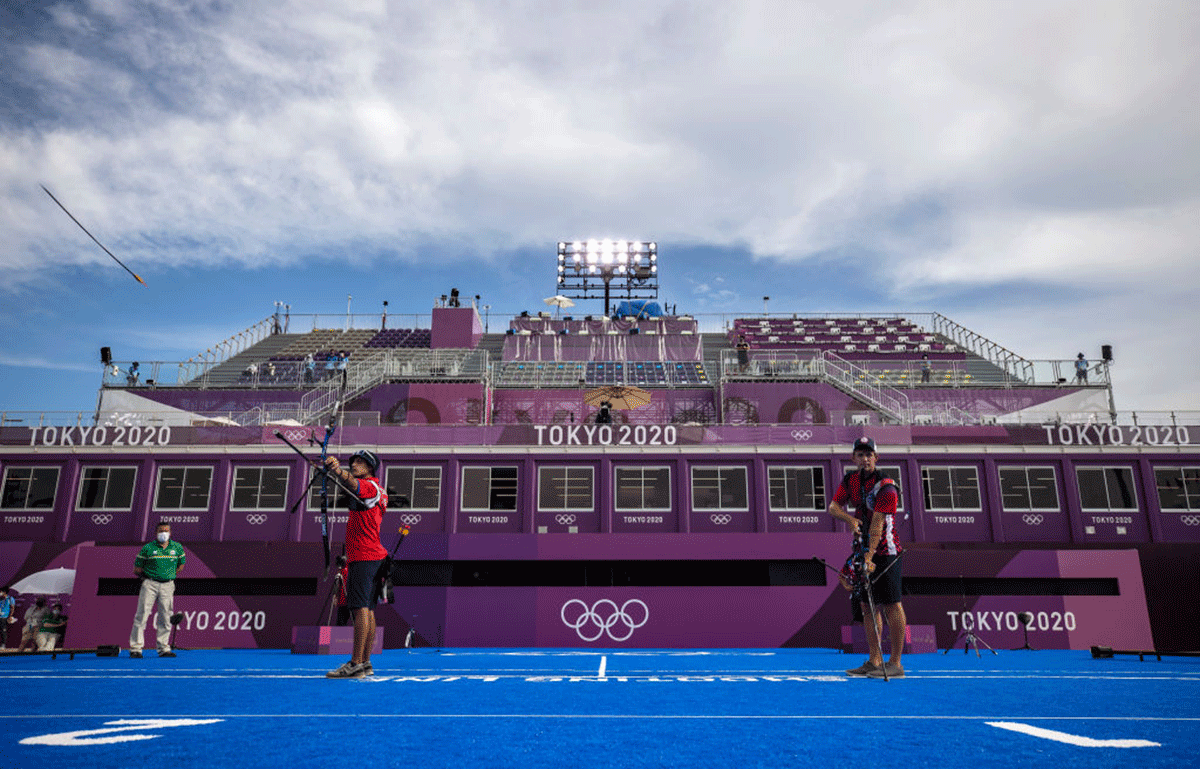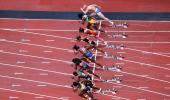
In an Olympic first, more than 100 archers are broadcasting their heart rates as they go for bullseye at the Tokyo Games, pushing forward contactless health monitoring despite disquiet in some quarters on accuracy and surveillance implications.
Pattern-recognition software from Japanese tech giant Panasonic Corp is calculating heartbeats per minute by tracking face colour in live video from standard cameras placed 12 metres from the shooting line. Variations correlate to pulse, which displays on the Olympics television feed.
All but two women and four men among the Games' 128 archers agreed to participate, with data retained only in the form of archived TV footage.
"I like it because I am able to know heart rates of other athletes, and think, 'Oh, that athlete is always calm,'" said Japanese archer Miki Nakamura.
"As long as they are using data as stated, I am cool with it."
Some archers find lower pulse rates help steady their aim, though research in simulated conditions has shown the measure has little influence on scores.
Tom Dielen, World Archery Federation's (WA) secretary general, said entertaining viewers is the goal.
"In the stands, you can feel the stress level because you feel the excitement building up and everyone getting quiet," he said.
"If you're at home watching and especially since there's no crowd (due to COVID-19 restrictions), it's very difficult to feel the experience."
The pressure facing South Korea teenager and gold contender Kim Je-deok appeared evident as he lost in a huge upset on Tuesday to Germany's Florian Unruh during the round of 32.
Kim's heart rate was around 120 beats per minute (bpm) when he shot three straight 10s in the first set, but jumped to 160 bpm as later arrows hit 8s. Tied in the fifth set, he raced to 170 bpm. Kim later acknowledged his nervousness, saying it hurt his performance.

Beside Panasonic, tech heavyweights Microsoft Corp and Alphabet Inc's Google are investing in camera-based health tracking software because it could enable online doctor check-ups and spot worsening conditions earlier.
A paper this month by British and Canadian researchers reviewed 26 studies of camera-based heart rate calculations and found systems are accurate.
But those studies rely on a scale of skin tones that experts say is biased against people of colour and leave questions about whether the technologies accurately measure darker bodies. Microsoft and Google have said they are working through the concerns.
Out of the 128 archers representing 51 countries at the Tokyo Games, 122 archers are being monitored.
Critics of widespread biometrics capture are concerned that the Olympics could make the technology appear cool and fun, overshadowing its potential invasiveness.
"That this information can be gathered passively, at a distance, ought to give us pause," said Mark Andrejevic, a professor at Australia's Monash University researching data mining.
Still, COVID-19 already accelerated contactless monitoring, with many venues including stores in Japan and elsewhere installing ambient systems to track body temperature. Touchless tools for measuring blood pressure and oxygen are coming.
For World Archery, heart rates on TV has been a decade-long pursuit. Archers previously wore monitors from a now-defunct Swiss company, but results were imprecise depending on skin colour.
The WA's Dielen said Panasonic assured him its system has no such issues, and he added that biathlon and other sports also are considering the technology.
Panasonic declined to comment because of restrictions on Olympic sponsors speaking during the Games.
US archer and world champion Brady Ellison said his results vary, regardless of whether he has felt no anxiety or so much that "I couldn't feel my legs." He agreed to participate, though.
"It (winning) comes down to training, a little bit of luck and just mental (state)," he said.
"I like seeing it (the heart monitor) because it's, I don't know, it's curious."













 © 2025
© 2025